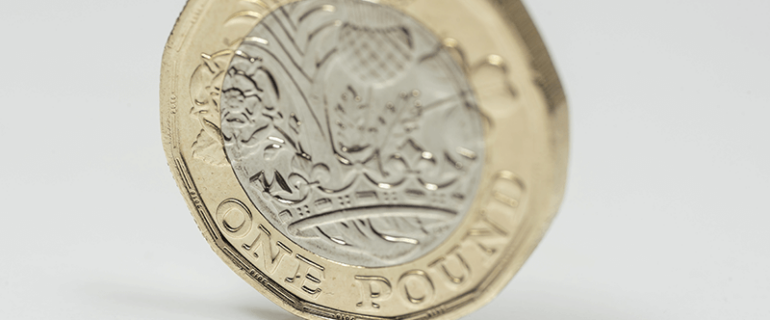All types of loan are either unsecured or secured.
With both kinds of loan, you borrow money from a lender, with interest, and pay back the amount owed in monthly instalments over an agreed period of time.
However, secured and unsecured loans have a number of key differences, including the level of risk they present, the amount you can borrow and the interest you could be charged.
What is a secured loan?
A secured loan is a form of borrowing that involves using something valuable as collateral or security for the loan. This will often be your home, but could also be another valuable asset such as a car or piece of jewellery.
If you default on a secured loan, lenders are within their rights to repossess the property or asset you put forward as security so they can recoup the money they are owed. This reduces the risk for the lender, which means secured loans generally come with lower interest rates than unsecured loans.
However, lenders will still look at your credit history and financial situation to help them decide whether to offer a loan.
» MORE: What is a secured loan?
What is an unsecured loan?
Unsecured loans, also called personal loans, tend to be a more straightforward form of lending. Unlike a secured loan, unsecured loans don’t require you to provide any form of security, which means they are a relatively lower risk for the borrower.
With an unsecured loan, the amount you can borrow will be based solely on your credit score and financial circumstances rather than the value of an asset.
Unsecured loans carry more risk for the lender, so they will often have a higher interest rate than a secured loan.
Having a good credit score indicates to lenders that you are likely to repay the loan in full and on schedule, as you have a good track record of making payments. This could therefore increase your chances of being accepted and getting a more competitive interest rate.
» MORE: What is an unsecured loan?
How much can I borrow with a secured loan vs an unsecured loan?
Some lenders may offer unsecured loans for up to £50,000, while with others the maximum available may be less.
Lenders only have your previous credit history to assure them that you will repay the loan, with no property or other asset acting as security that they could claim if you stopped paying the loan and eventually defaulted. This means unsecured loans pose a higher risk to lenders and, as a result, you typically won’t be able to borrow as much as with a secured loan.
Secured loans are considered less of a risk for lenders, compared to unsecured loans, as they have an asset as back-up if a borrower fails to repay the loan. As a result, you can normally borrow large sums over longer periods and potentially at lower interest rates.
But it is important to remember that if you are repaying the loan over a longer time frame, it will affect the overall interest you pay as you’ll be paying the interest for longer.
» MORE: Use our personal loan calculator
Repaying a secured loan vs an unsecured loan
You typically repay both secured and unsecured loans in monthly instalments over an agreed term.
Unsecured loans often have fixed interest rates, which means you would normally repay the same amount each month.
Secured loans sometimes have variable interest rates, which means your monthly payments could change if the interest rate changes.
Secured loans also often have longer repayment terms than unsecured loans.
If you can’t repay an unsecured loan, your home and other valuable assets are not directly at risk as they haven’t been used as security for the loan. However, your credit score may be affected and you could face court action.
Secured loans come with greater risk to the borrower, as you could lose the asset the loan is secured against if you fall behind on payments.
» MORE: What happens if you can’t repay a loan?
What can you use a secured loan or an unsecured loan for?
Loan providers do not always ask what you plan to use your loan for, but you may be asked for this information as part of your loan application.
Common reasons to take out an unsecured personal loan include expensive purchases such as a new car or home appliance, but you could also use your loan for a special event like a holiday or your wedding. Unsecured loans can be used for home improvements too, though you may find a secured loan is more suitable as you can usually borrow a greater amount.
As well as to pay for renovations, secured loans are sometimes used to consolidate existing debts to make the repayment schedule more manageable. Debt consolidation is not a decision to be taken lightly and you may pay back more over the long term, even if you reduce your monthly repayments in the short term.
Key differences between secured and unsecured loans
| Unsecured loans | Secured loans |
|---|---|
| They don’t require any form of security, so there is more risk for the lender. | They require some form of security, such as a house or vehicle, so there is more risk for the borrower. |
| Limited loan amounts are available. | You might be able to borrow larger sums of money. |
| Loan terms are typically shorter than on secured loans. | Lenders can offer longer loan terms. |
| They usually have fixed interest rates and monthly payments. | They may have variable interest rates, so monthly payments may change. |
| The best interest rates are reserved for those with the best credit scores; interest rates for other applicants can be high. | They can offer lower interest rates compared to unsecured loans due to an asset being used for security. |
| There are low or no set-up costs. | These types of loans can be expensive to arrange. |
| You can often receive funds relatively quickly. | It may take longer for the loan to be approved. |
| You don’t need to be a homeowner or own an asset to qualify for a loan. | Only people who own enough equity in their homes, or have another valuable asset, are eligible. |
| Failing to repay the loan will harm your credit score, but your home/assets won’t be at risk, unless court action is taken against you. | Failing to repay the loan could result in the lender repossessing your home, or the asset used as security and will also affect your credit score. |
Should I get a secured or unsecured loan?
The question of whether you should apply for a secured or unsecured loan is up to you and depends on your individual circumstances.
To help you decide which loan is most suitable, you will need to think about:
- how much you want to borrow
- how long you’ll need to repay the loan
- your financial situation
- your credit score.
You can then compare both secured and unsecured loans to see which deals you qualify for, making sure you look at the total cost of borrowing, not just the interest rate.
Take steps to prepare your information before making a loan application and ensure that you have checked your credit score in advance.
You can often check your eligibility for a loan before applying, which won’t affect your credit score.
If necessary, try to improve your credit score before applying for a loan as this will help your application.
WARNING: Think carefully before securing debts against your home. Your home may be repossessed if you do not keep up with repayments.
Image source: Getty Images

What is an Unsecured Loan?
An unsecured loan can be a simple way of borrowing money, whether you have a big expense on the horizon or other loans you want to consolidate. Find out more about how much you can borrow, over what length of time, and the pros and cons of this type of loan.

Secured Loans Explained
When taking out a secured loan, you put forward the equity in your property, or another asset, as security for the loan. This might help you get a loan when otherwise couldn’t, but does come with the risk that you could lose your asset to the lender if you fail to repay what you owe.

What Can I do if I am Struggling With Secured Debt?
If you are behind on your secured loan repayments, you may be worried about losing your property. But if you get help early on, you may be able to avoid your property being repossessed.




